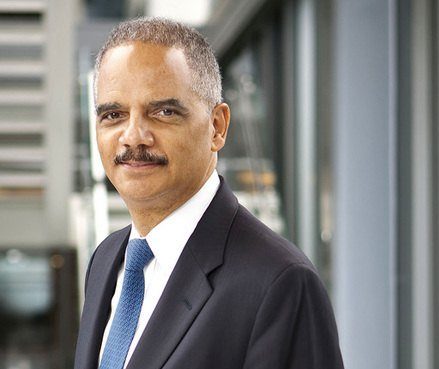Celebrating Caribbean American Heritage Month
This is a special post written by Charles Warren, Curriculum Developer at Triangle. Charlie is also a member of Triangle’s Racial Equity Committee (REC) and Disability Justice Task Force (DJTF). As part of our commitment to the work of the REC and DJTF, we will be sharing more information with you on subjects related to racial equity and disability justice. This post continues our series dedicated to calling attention to the contributions of people with disabilities to American history.
This June, we’re celebrating the amazing impact of Caribbean culture on the US and disability history. One person who made a significant contribution to disability rights is Eric Holder. Born in New York City to Barbadian parents, Holder rose to become the first African American Attorney General.
Prior to this accomplishment, Holder was a principal author and long-time advocate for the Americans with Disabilities Act (ADA). This landmark 1990 law prohibits discrimination against individuals with disabilities in all areas of public life, from jobs to transportation. Holder tirelessly worked to ensure the ADA’s promise was realized, pushing for robust enforcement that led to significant improvements in accessibility and a reduction in discrimination. He championed efforts to ensure facilities across America provided access and helped secure health-care access for deaf Americans.

The Everyday Impact of the ADA
What does the ADA really mean for people with disabilities in their daily lives? Here are a few ways the ADA impacts our daily lives:
- Accessible Transportation: Think about buses with lifts or ramps, and audible and visual announcements on public transit. The ADA mandated these changes, ensuring people with disabilities can get to work, appointments, and social events.
- Braille and Closed Captioning: The ADA helped standardize things like Braille on elevator buttons and public signs, and pushed for closed captioning on televisions in public places, making information more accessible for individuals who are blind or have low vision, or who are deaf or hard of hearing.
- Accessible Restrooms: Public restrooms with wider stalls, grab bars, and accessible sinks are now a standard expectation, thanks to ADA requirements.
- Equal Access to Goods and Services: Businesses like restaurants, stores, and movie theaters can no longer turn away customers because of a disability. The ADA requires them to make “reasonable accommodations” to ensure everyone can enjoy their services.
- Ramps and Curb Cuts: Those sloped areas on sidewalks and at building entrances that seem so common now? They’re often a direct result of the ADA, making it possible for wheelchair users, parents with strollers, and even delivery drivers to navigate public spaces.
These changes collectively transform daily life, fostering greater independence and inclusion. The contributions of many activists add up over many years and stand as the foundation of the disability rights movement. So, Happy Caribbean Heritage Month! Let’s salute Eric Holder and countless others whose work for disability rights continues to enrich and enhance our communities!